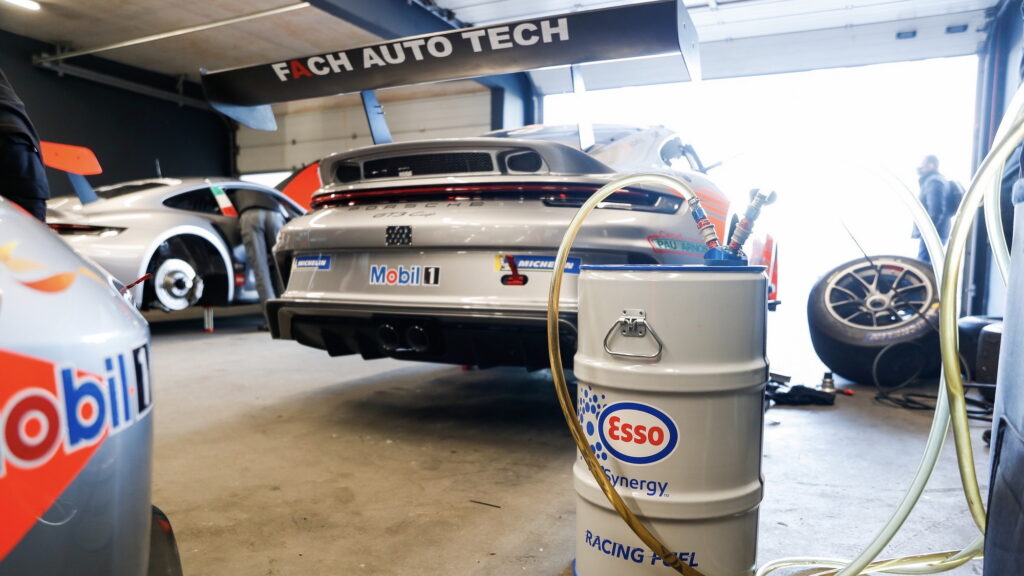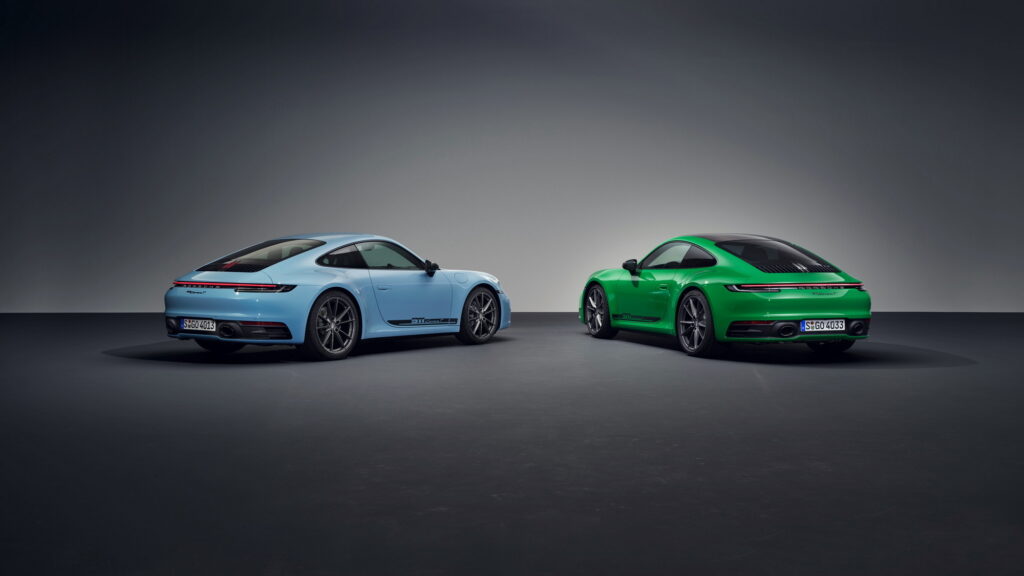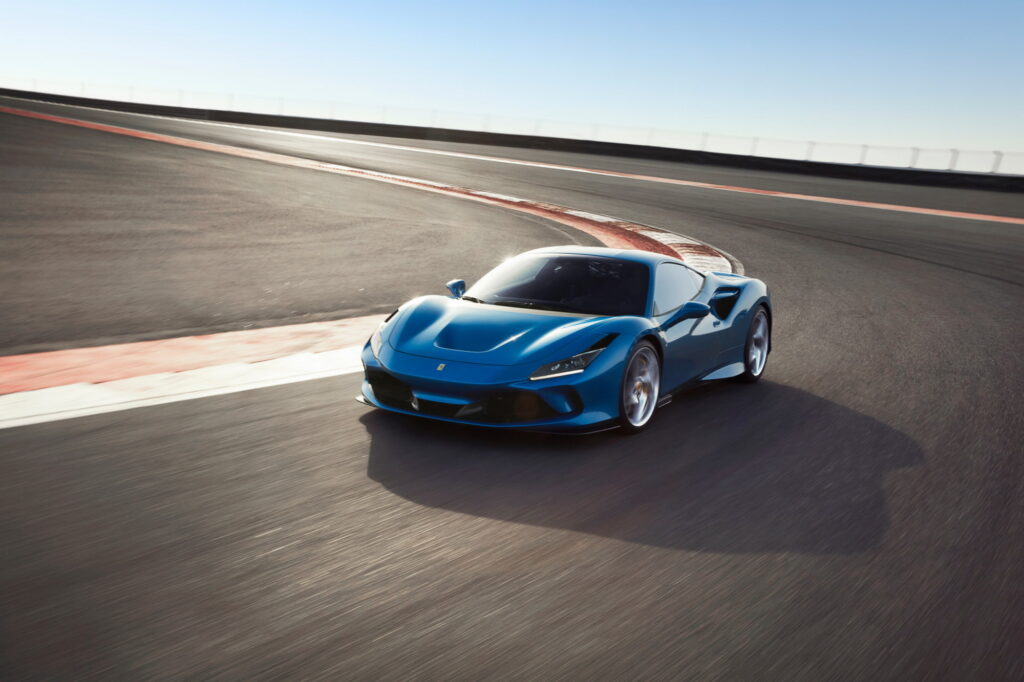In mid-February, the European Union approved a law that was set to effectively ban the sale of new internal combustion vehicles by 2035. At the time, it seemed that a rubber stamp was all that was needed to finalize the environmental measure. In March, though, Germany and Italy threw a wrench in the works, and it seems that those nations’ two best-known performance brands may be partially to blame for the EU’s headache.
Porsche and Ferrari, two brands known for their on-track performance and engineering expertise, have both decided to invest heavily in the future of synthetic fuels – the very product that both Italy and Germany want allowances made for before they agree to sign onto the legislation, reports Bloomberg.
Proponents of synthetic fuels (or e-fuels) claim that the technology could be the savior of the internal combustion engine. When produced using green electricity, e-fuels pollute considerably less than fossil fuels, and have already been implemented in racing series around the world, as a means of reducing their toll on the environment.
Read: Formula 1 Reveals New “Green” Graphics, Aims For 100% Sustainability With E-Fuels By 2025

The technology could also help supercar manufacturers eke out a future for their internal combustion engines. In the case of both Porsche and Ferrari, the particular qualities of their engines have long defined their cars – in the former’s, the rear-engine layout is central to the 911’s charm, while the high-revving shriek of Ferrari’s engines have been its calling card.
As such, Porsche has invested in producing e-fuels through a pilot project in Haru Oni, Chile. It has also used the fuel for its one-make racing series. Ferrari, meanwhile, has said that it, too, will invest in the technology to “reduce emissions while continuing the use of internal combustion engines that preserve our heritage.”
That sentiment is echoing through Germany’s parliament right now, as the right wing FDP party – one of the three parties that currently makes up the nation’s coalition government – pushes for e-fuel accommodations in EU law.
Indeed, the party’s leader, Christian Lindner, came under fire for texting Porsche CEO Oliver Blume during official government negotiations. The party claim, however, that automakers should be able to explore all emissions-reducing technology.
Read: Germany And Italy Might Block Europe’s 2035 ICE Ban

The problem is that the potential for e-fuels to reduce emissions relies entirely on where the energy used to produce it comes from. It is less efficient to use that energy making fuel, which then powers cars, than it is to simply pump it straight into the vehicles themselves, and there are fears that if demand for e-fuels rises too quickly, makers could turn to polluting electricity generation to fill that need. As such, e-fuels have been called a Trojan horse for the fossil fuel industry by critics.
In addition to bowing to industry pressure, though, the FDP is reacting to its own shrinking popularity. It fared poorly in a series of local elections, and has been accused of using this issue to tap into a popular desire for internal combustion engines and raise its profile.
Even among some automakers, the FDP’s attempts to hold zero-emissions regulation hostage aren’t proving to be universally popular. Audi recently called on the EU to finalize the legislation in order to create certainty for automakers, while Polestar’s CEO, Thomas Ingenlath, echoed that sentiment.
“I would call it now almost pathetic,” said Ingenlath. “The industry and the politicians should finally give that very clear signal about what is the journey ahead.”
Following a meeting between German Chancellor Olaf Scholz and European Commission President Ursula von der Leyen this weekend, both parties were positive. Both said that the discussion was constructive, reports Bloomberg.
“It’s not at all about differences of opinion but about the question of how it can work,” Scholz said. “And that is such a solvable question that we are all very optimistic – not just within the German government but also regarding our talks with the commission.”





